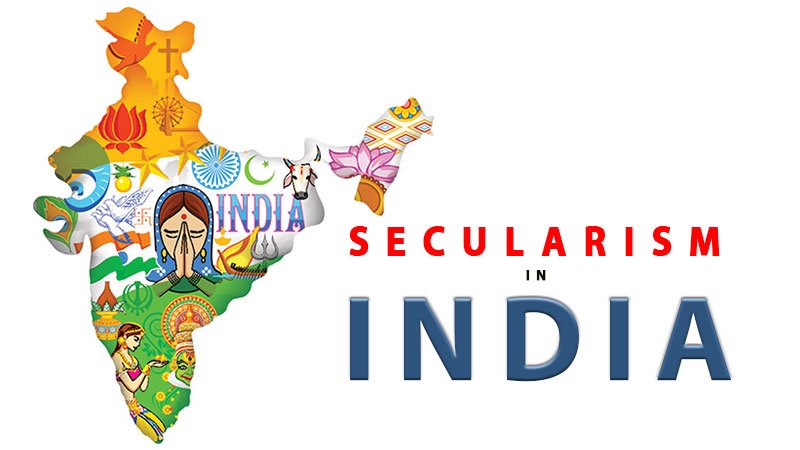 If you really care about secularism in India, understand both Hindus and Muslims.
If you really care about secularism in India, understand both Hindus and Muslims.
The more progressive and intellectual variety of English speaking Indians often seem to be quite concerned about growing majoritarian behaviour in the country. They believe the following:
1) independent institutions are being undermined;
2) a Hindu agenda is being imposed on the people of a secular nation;
3) minorities are being treated as second class citizens;
4) crimes are being committed against Muslims without any consequences;
5) the RSS wants to turn India into a Hindu country; and
6) the government is supporting Hindu supremacists.
The recent Ayodhya judgment allowing the construction of the temple, even though it came from the SC, is also seen in the same light. What else did you expect in these times, is the common refrain.
In the minds of these liberals, the majority Hindus are the oppressors; the minority Muslims are the oppressed. Hence, it is Muslims who are being wronged, Muslims who need extra protection and rights and it is Hindus who are going out of control.
In all this, they forget the complicated nature of Hindu-Muslim history in our nation. What this elite set often tries to do in their writings and opinions, is to emulate certain Western liberal publications aspirational to them. Copying the West is a common Indian habit.
To our elite set, the liberal journalists in New York and Washington are always right. They follow such publications in their social media feeds, share articles from them with their like-minded friends and generally form a world view highly influenced by current Western values.

Except, they don’t just get influenced. They blindly copy them. There is no application to specific situations. If the West is talking about minority rights for blacks and how the white majority is a privileged oppressor, our liberals slap the same theory on Hindus and Muslims. Hindus are in majority, Muslims are in minority. So, Hindus, like whites, are the privileged class treating Muslims badly.
Except, the Hindu-Muslim situation in India is not like the white-black scenario of America at all. In America, there is a clear history of one-sided oppression. Blacks were brought as slaves, to be bought, sold and ill-treated by whites. This legacy is not easy to wipe out, and the country is dealing with it even today.
India, on the other hand, had it quite different. One, Muslim rulers oppressed largely Hindu subjects for centuries. Thousands of India’s mosques were built on temples that were destroyed. Is that completely irrelevant when we understand Hindu-Muslim dynamics in our country?
Two, when India became independent, a separate country (now two countries – Pakistan and Bangladesh) was created for the specific purpose of being a safe haven for Muslims. Pakistan did not allow Hindus to live there in large numbers. India did, and millions of Muslims continued to live here peacefully, progressing over generations. Is that not relevant to the dynamics between the two communities too?
View our Blog: https://ensembleias.com/blog/
Some say why rake up the past, as it is not relevant today. Well, the same logic is not applied when it comes to reservation. The upper caste but lower-middle class Indian kid can work hard and yet not get the college admission he or she wants. The reason: Historical wrongs. He or she is simply supposed to accept that half the seats are not on merit, because centuries ago, upper caste people oppressed lower caste people.
Of course, we are in 2019 now, and we cannot obsess about Hindu-Muslim history all the time. To move ahead, we have to bury some differences. However, to say that being secular means disregarding our culture, traditions, values and sufferings that are attributable to Hinduism also doesn’t seem right. It doesn’t seem right that asking for land for a shrine for one of Hinduism’s major gods is majoritarianism.
Neither is fixing things in Kashmir majoritarianism. The day Hindus were thrown out of Kashmir, Article 370 should have been revoked and all bets should have been off. If at all, we are three decades too late in correcting that wrong.
India is practically the only nation on earth that houses so many Hindus. If we don’t protect this religion and project it as inferior, or bullying and regressive in nature, shame on us. For Hinduism is not just a religion for most Indians, it is also a part of the culture for all Indians.
Instead, if you really care about secularism in India, understand both sides. Accept that wrongs were done on both sides. Realise that Hindus have suffered as much if not more. Hindus being in a majority today doesn’t take away their right to feel that pain or amend a few wrongs. Only once we do that, we can reinforce our secular principles.
Of course, it is wrong to lynch a person on the street. It is also wrong to attack a specific community in a mob. These are all blatant crimes. We also cannot change the secular fabric of our nation or impose religious beliefs on anyone. But the rules apply to both sides. Painting a community as intolerant will only undermine your chance of connecting with them and effecting any change.
India is secular. However, its unique history and its inextricable links and unique position with respect to Hinduism cannot and should not be ignored. New Delhi is not New York, Varanasi is not Washington and Ajmer is not Alabama. Don’t copy-paste Western constructs to be cool. Apply them to specific settings and situations. That’s real education, and if i may say so, being a real intellectual.
Visit our store at http://online.ensemble.net.in
Source: The Times of India | Written by Chetan Bhagat



